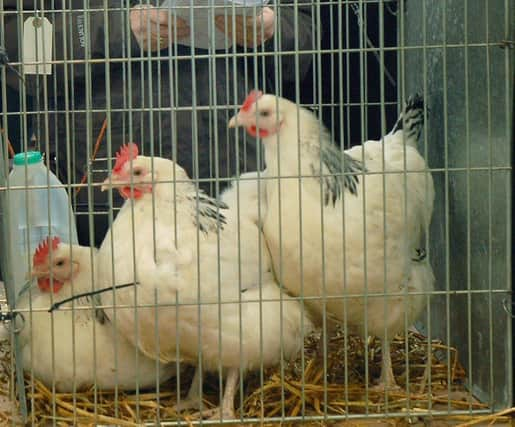Rother residents told to report sick or dead birds after confirmed bird flu cases


A spokesperson for Rother District Council said: “If you find sick or dead wild birds on private property, we ask you to ring Defra on 03459 335577.
"If found on public land, report it directly to your district or borough council.”
Advertisement
Hide AdAdvertisement
Hide AdThe council issued the guidance, which also advised people to avoid touching any wild birds found sick or dead, after the government put two strict monitoring zones in place in Rother.
Highly pathogenic avian influenza was confirmed on June 15 in non-commercial poultry at a property near Bexhill-on-Sea, leading to all poultry on the premises being culled.
Defra has since put a three kilometre Protection Zone and a 10 kilometre Surveillance Zone in place around the premises.
A three kilometre Captive Bird Controlled Zone was also been created around the premises of Guestling Green in Rother after a case of a bird flu was confirmed in a captive bird.
Advertisement
Hide AdAdvertisement
Hide AdThe implementation of the zones in both areas means that owners of captive birds must now keep a record of the names and addresses of any person that visits the premises.
It also requires owners to keep vigorous records of the movement of poultry and eggs.
People living within the designated zones received a letter last month telling them that poultry and other birds must now be housed, and poultry-owners were told they are required to complete a survey issued by the Government to help scientists assess the risk of spread among birds.
Avian influenza is a viral disease, which occurs primarily in birds. Humans are able to catch the disease from birds, though it is rare.
Advertisement
Hide AdAdvertisement
Hide AdWorld Health Organization (WHO) scientists believe it is likely that the virus is carried by migrating birds, although other organisations have argued that the poultry trade is the main cause of the recent spread.
Advice issued by the Government states that any risk to domestic pets such as cats or dogs is assessed as extremely low, however they recommend that dogs are kept on a lead within the designated areas.
For more information on avian influenze please visit the guidance issued by East Sussex County Council.